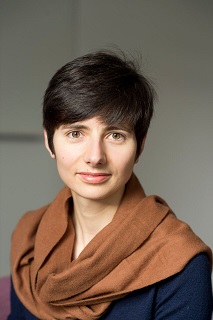IER News & blogs
An inclusive approach to measuring green jobs in Scotland
 A new report from IER identifies a greening of the labour market in Scotland. Working with colleagues from Strathclyde University, IER has developed a new green Standard Occupational Classification ('GreenSOC') to help define, identify and measure green jobs in Scotland.
A new report from IER identifies a greening of the labour market in Scotland. Working with colleagues from Strathclyde University, IER has developed a new green Standard Occupational Classification ('GreenSOC') to help define, identify and measure green jobs in Scotland.
New report - Graduates in non-graduate occupations
A recent IER report prepared for HEFCE and SRHE IER's Dr Heike Behle compares the early pathways of graduates from two leaving cohorts: those who graduated in 1999 (‘class of 1999’) and those who graduated from three year courses in 2009 and from four year courses in 2010 ('class of 2009/2010'). It shows that the proportion of employed graduates working in non-graduate jobs during their first year after graduation has remained high with approximately 36 per cent of all employed graduates from three year courses and, respectively 30 per cent of all employed graduates from four year courses working in non-graduate jobs fifteen months after graduation.
Behle, H. (2016) Graduates in non-graduate occupations (Report prepared for HEFCE and SRHE). London: Higher Education Funding Council for England.
Expert seminar: What is a graduate job?
 The increase in the proportion of graduates working outside traditional areas of graduate employment, changes in technology and the labour market, and the shift in the definitions of skill towards encompassing interpersonal abilities, have redefined the concept of ‘graduate’ jobs. This seminar provides a unique opportunity for expert discussion of the developments in graduate job classifications and their contributions to understanding the recent changes in the graduate labour market. The seminar is being organised by Dr Daria Luchinskaya, who joined IER in September.
The increase in the proportion of graduates working outside traditional areas of graduate employment, changes in technology and the labour market, and the shift in the definitions of skill towards encompassing interpersonal abilities, have redefined the concept of ‘graduate’ jobs. This seminar provides a unique opportunity for expert discussion of the developments in graduate job classifications and their contributions to understanding the recent changes in the graduate labour market. The seminar is being organised by Dr Daria Luchinskaya, who joined IER in September.
More information and to register for the seminar on 9 November.
IER Welcomes Chariklea Tzanakou to IER
We are delighted to announce the arrival of Dr Charoula Tzanakou who has joined IER as Research Fellow on the ESRC-funded Precarious Pathways to Employment of Young People (#Paths2Work). Since completing her PhD at Warwick in 2012, Dr Tzanakou has worked at the Skills, Knowledge and Organisational Performance (SKOPE) Research Centre at the University of Oxford and at the IER. In September 2013, Charoula was appointed as Research Fellow to work with Professor Alison Rodger, in the Faculty of Analytical Sciences, on an ESRC-funded project on the under-representation and low retention of women in academic science careers.
who has joined IER as Research Fellow on the ESRC-funded Precarious Pathways to Employment of Young People (#Paths2Work). Since completing her PhD at Warwick in 2012, Dr Tzanakou has worked at the Skills, Knowledge and Organisational Performance (SKOPE) Research Centre at the University of Oxford and at the IER. In September 2013, Charoula was appointed as Research Fellow to work with Professor Alison Rodger, in the Faculty of Analytical Sciences, on an ESRC-funded project on the under-representation and low retention of women in academic science careers.
Occupational Coding in Multi-national Surveys
A research team at IER is developing a multi-lingual software tool for coding occupations using several European languages. CASCOT software, which has been in use for over ten years, has been extended to include Dutch, English, French, German, Italian, Slovakian and Spanish versions. There are plans to add other languages. The tool uses ISCO-08 as the main classification. This development is being undertaken as part of the EC FP7 project DASISH - Data Service Infrastructure for the Social Sciences and Humanities.
In the context of this work, Margaret Birch and Ritva Ellison gave a presentation entitled ‘CASCOT and the Coding of Occupations in European Surveys’ on 10 February 2014 at the InGRID (Inclusive Growth Research Infrastructure Diffusion) workshop organised by the Amsterdam Institute for Advanced Labour Studies at the University of Amsterdam.
A Workshop partially funded by the DASISH project will take place on 10-11 April 2014 in Venice. This event will provide participants with the opportunity to test the coding tool in their own language and contribute to fine-tuning the coding process. For more information on the Venice Workshop, please contact Margaret Birch (M.E.Birch@warwick.ac.uk).
